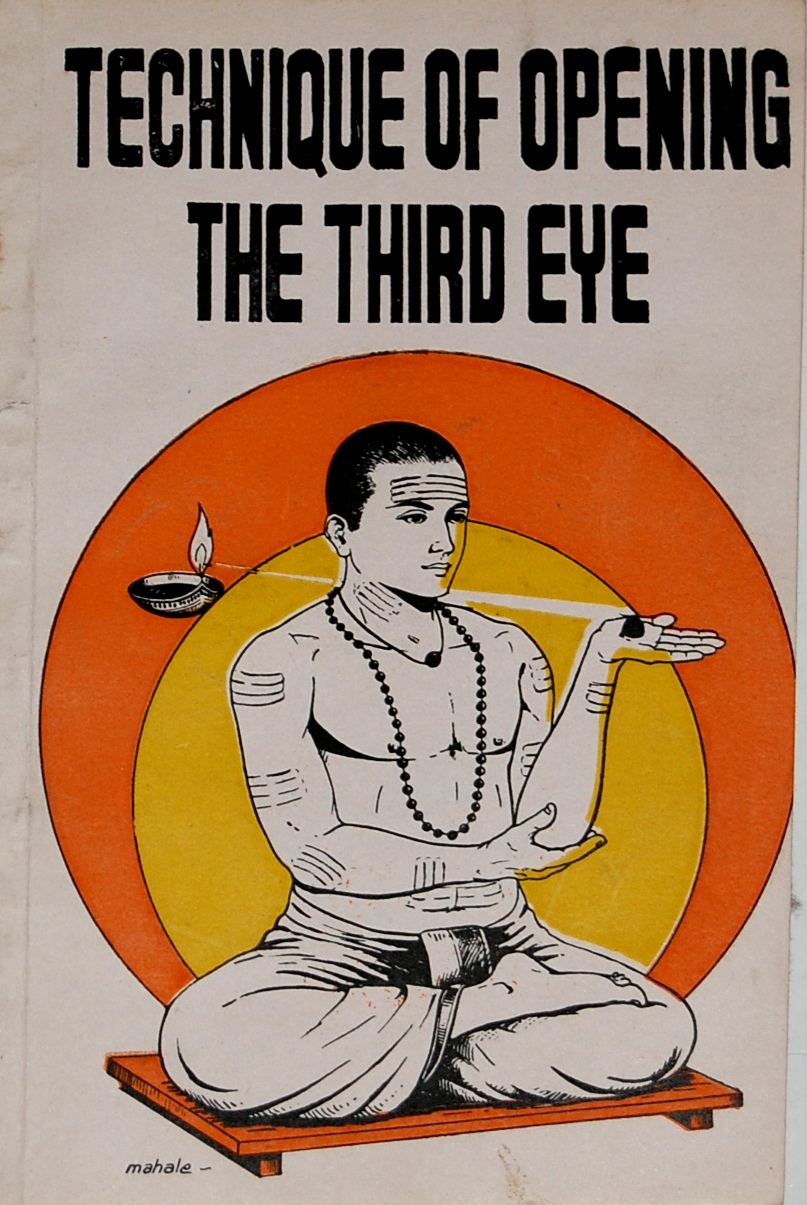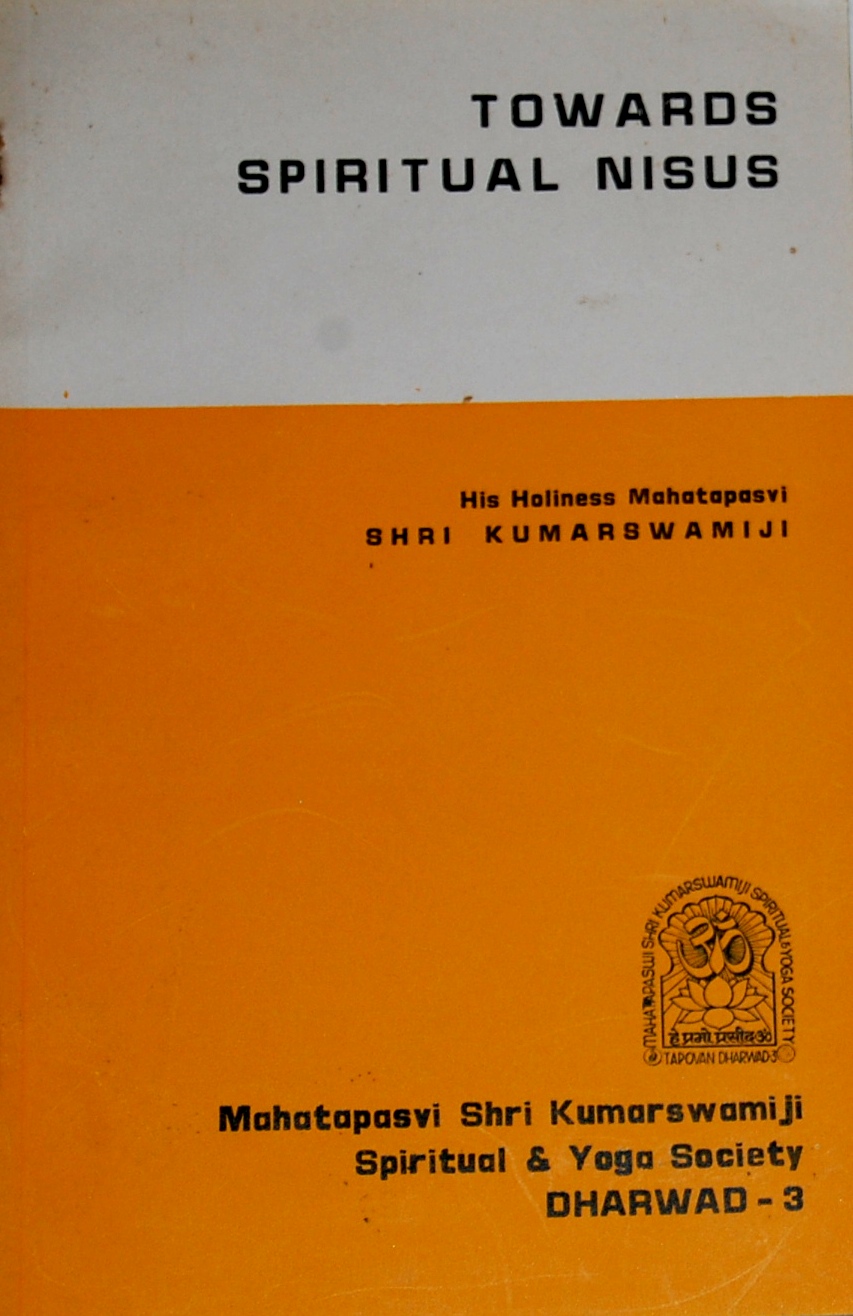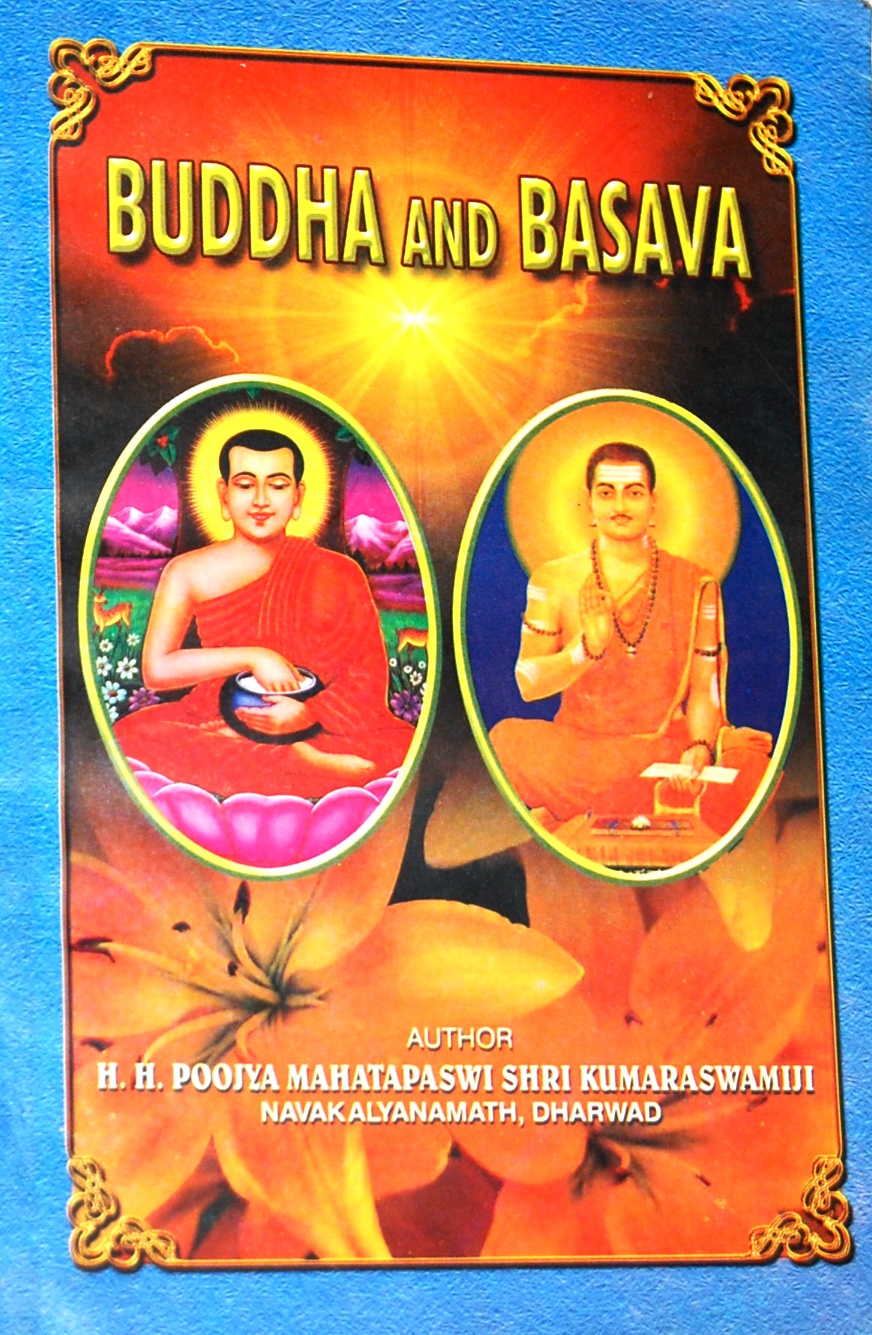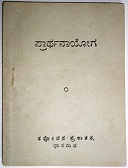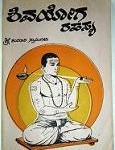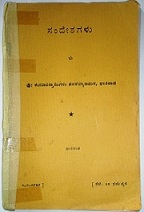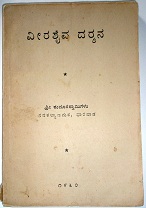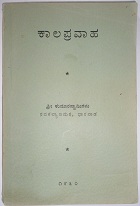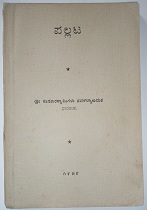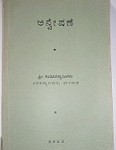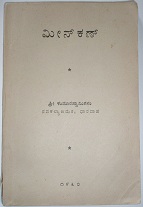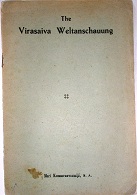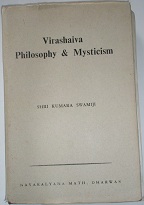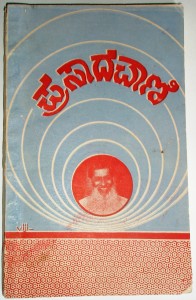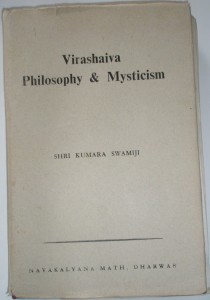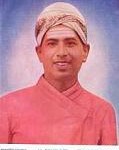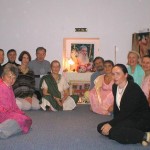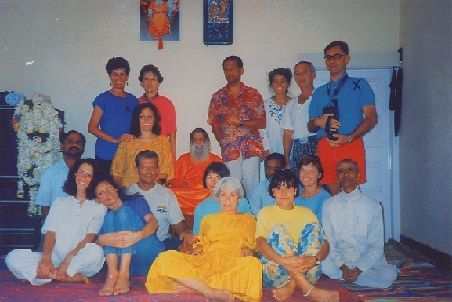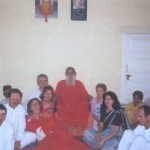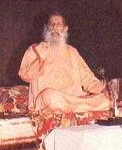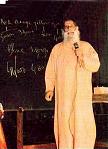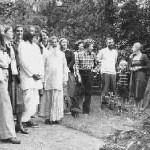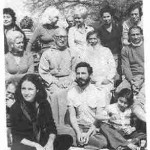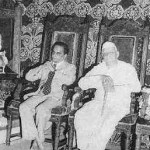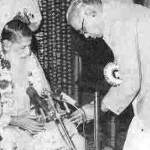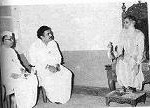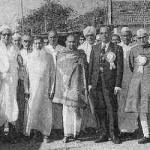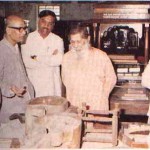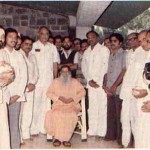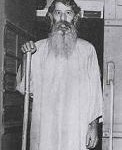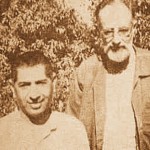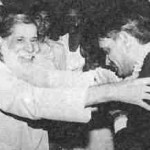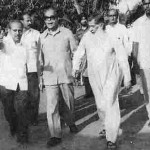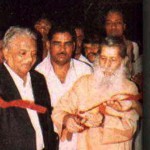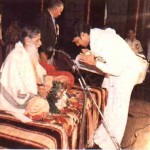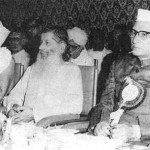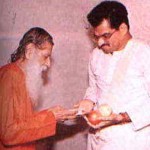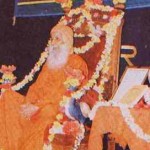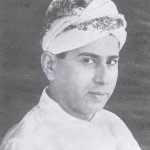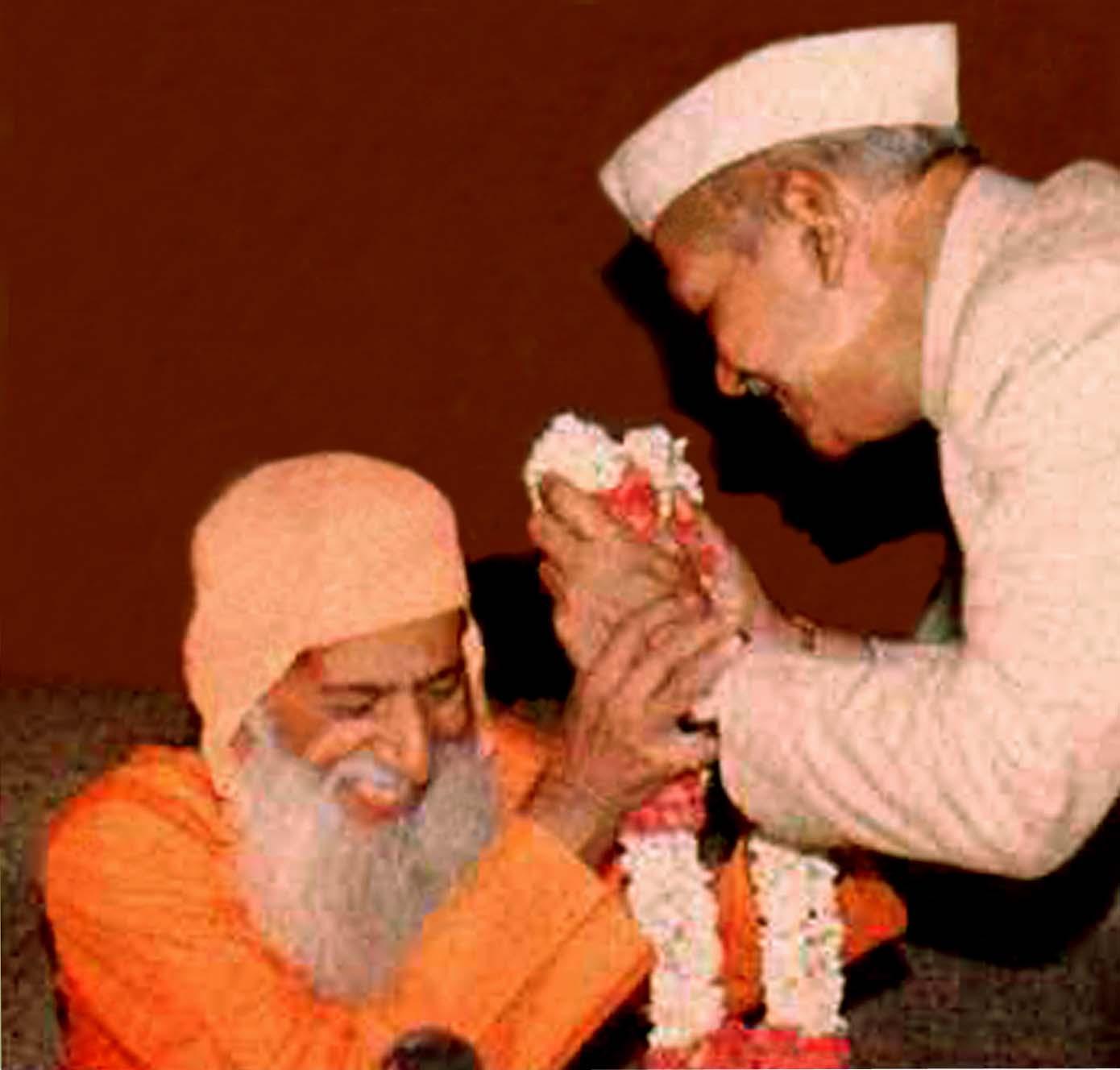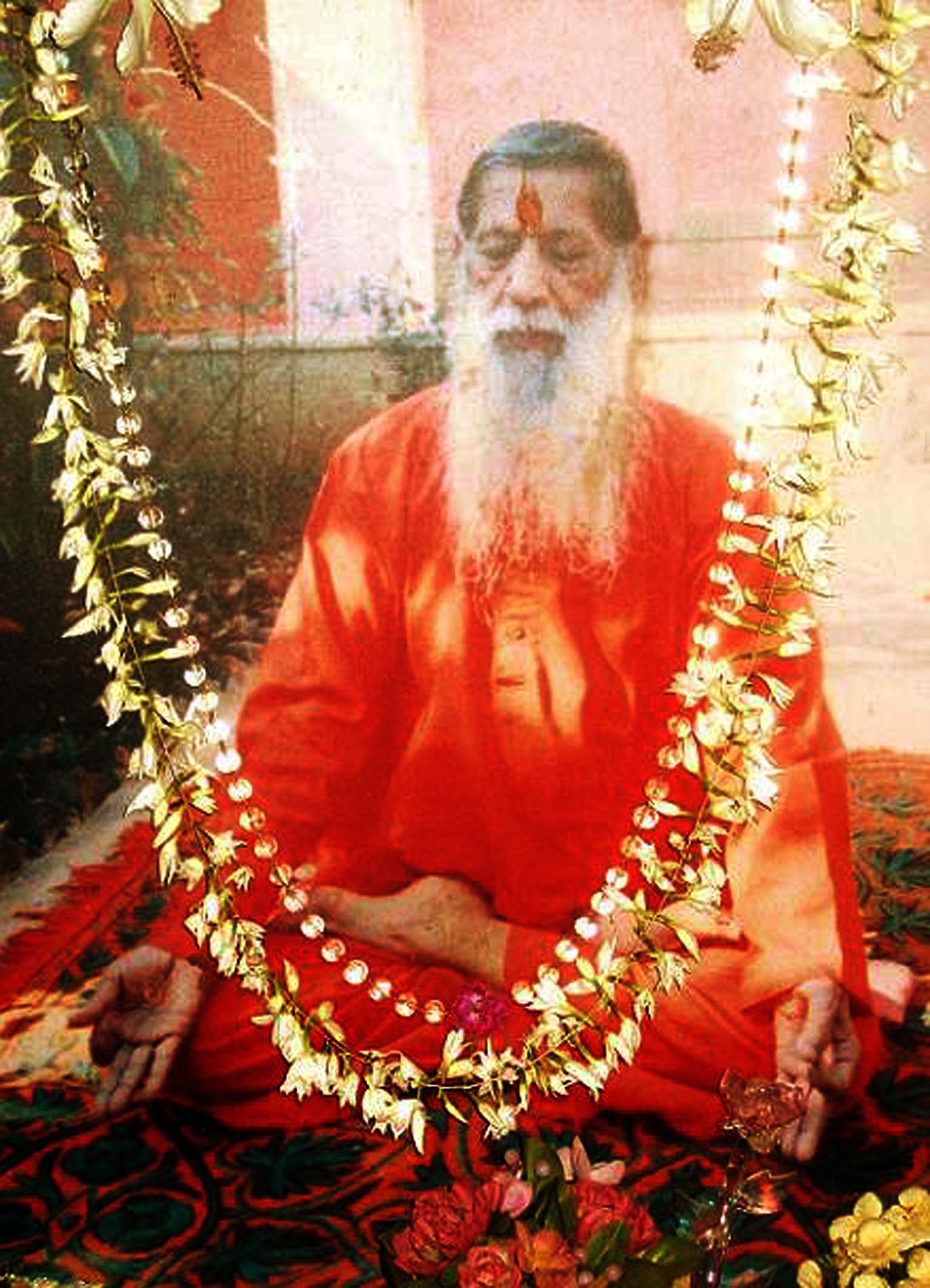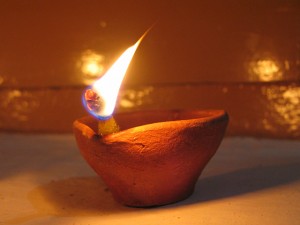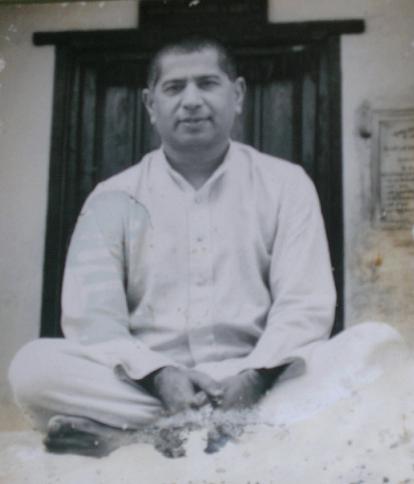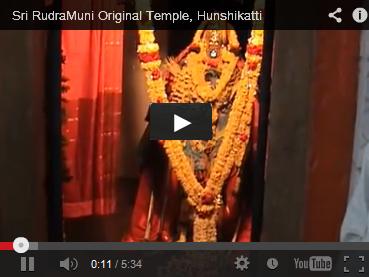Prabhu is indeed a master mystic; a mystic is he who is completely redeemed from self-occupation, because of this he is bale to embody and radiate a measure of eternal life. His whole life – personal, social, intellectual and mystical – is lived in the supernatural regard. To what end does he live? He lives to help save and enlighten by his living action and lurid contemplation and to oppose the downward drag of the instinctive energy. He is a chosen vehicle for redemption, transformation, and creative love of God. Prabhu in his itinerant rounds redeemed many an aspirant and made them fit for the realization of the Beatitude. In this work of redemption, individual and groups are called not to a rejection of the sensory world but to its transformation; to permeate the greatest number of successive acts, the widest area of relationships with the conscious power of the Infinite.
Allama Prabhu, an enlightened philosopher, an eminent mystic and an exalted yogi is the central figure of Shunya Sampadane.
Philosophy is not a creation of man; it is rather an expression of the divine element in man. Philosophy is the process of finding out the highest Reality as its object. The word Brahman means both, Brahman, as the source of knowledge, is indispensable, without fault, self valid and impersonal. Brahman as Reality is all complete and the all complete is all powerful. Reality implies the thing-in-itself, its objectivity and functions. As the doer and giver of all Brahman is called God and Allama Prabhu addresses God as Guheshvara or Guheshvaralinga.
The philosophy of God always goes with the psychology of self and the self is described variously by the various schools. The materialist view that the Atman is an assemblage of atoms and physical changes is erroneous, as matter does not think and seek liberation. The vitalist view that it is life which is an inner activity or vital impulse that multiplies itself is untenable. The empirical view that the self is a cluster of sensations or five skandhas is rejected on the ground that it denies the unity and continuity of the enduring self. The rationalist view that “because I think, therefore, I am” ignores the different levels of conscience and it is more true to say that “because I am, therefore, I think” The adjectival theory which makes the self an attribute of the Absolute ignores its uniqueness. Finally the monistic view that the self is an illusionary reflection of Brahman regards it as a mere fiction without any moral value. But Prabhu maintains that the self is a tattva of Reality, like God, it is self evident and is its own proof. Prabhu addresses this self as Anga. In Veerashaiva terminology, God is known as linga and the self is known as Anga.
The Dwaita system insists on the eternal distinction between the God and the self. Bhed-abheda expounds the dual and no-dual relation between the two. Panthesin says that all is God or God is all. But the Shiva-adwaita as adumbrated by Prabhu is different from all these systems as it states that God is immanent in all beings as their inner self and at the same time transcendent. Reality and value are one. God is so called because he is Infinite by nature and at the same time, he can infinitize the content of the finite self without destroying it.
The Shiva-adwaita which is sometimes known as Shakti-vishishta-advaita is essentially a philosophy of religion in which reason and faith coalesce and become reasoned faith. The key thought or the Shiva-adwaita theory of knowledge is the Reality is Knowledge. Knowledge as Darshan or philosophy includes what is perceived through the sense or Pratyakasha, what is inferred by syllogism, or Anumana, what is believed by testimony or Agama and what is intuited spiritually or Anubhava. If an unbridgeable gulf is accepted between being and knowing, then the theory of knowledge ceases to be an epistemology and skepticism becomes inevitable. This tendency is discernable in the Kantonian opposition between the noumenal and phenomenal Reality, the Bradleyan contrast between transcendental and empirical. Prabhu avoids this impasse by accepting the trustworthiness of knowledge in all its levels ascending from sense, perception, inference and testimony to the integral and immediate experience of God. The logical apprehension of God as the supreme leads to the intuitive realization of God as the most intimate. Knowledge is the affirmation of Reality and even negation presupposes affirmation. If God is real, the world rooted in God is also real, and man can proceed in his progress from the partial to the perfect. Truth is an immanent criterion of knowledge; truth is true till it is fully realized as the eternal value of Reality. Reality and value are therefore one. The more real a thing is the more truth it is. God then is the whole of Reality and the home of eternal value of truth, goodness, beauty and bliss.
Prabhu envisages such a God; his master passion, his driving force, is Good-vision. He proclaims a God not of rhetoric nor of inferential conviction but of direct insight, of the sublime consciousness, of the indwelling spirit and of the sanctifying grace. He speaks of God as the supreme spirit that encircles the universe with a halo of celestial glory and transports the soul with the raptures of heaven. Prabhu’s enthusiasm and earnestness as revealed in his vachanas or sayings in delineating the matchless power, the majestic wisdom, the unerring order, the august righteousness and the inexhaustible grace of God are superb and incomparably glorious. As Prabhu’s heart received the glowing light of God’s truth, the nectarine sweetness of his love, the captivating charm of his beauty and the heavenly aura of his holiness, he proved himself a dynamo of divine electricity to behold and sparkle mankind with the spiritual knowledge he was so blessed to receive from God.
Such a master mystic, the Sharana or the saint is a guiding spirit to the struggling souls lost in the wilderness. The physical world with its iron laws, its apparent cruelties, its strains and conflicts is the theatre in which the human soul appears. The secting pot of the organic life, colored and darkened by the countless fugitive joys and agonies caught in the ceaseless cycle of birth, growth and death – this is the material with which the soul has to deal. The power by which it can deal with it, is the power inherent in that unconditioned self giving of the soul to the will of the Supreme. In this loving yet willing surrender to the Supreme the tiny human soul achieves its glory and its rest. In so far as it is a creature of time, it suffers, but in so far as it partakes of eternity the suffering is transformed, by the touch of a master mystic like Prabhu, into the still and living peace.
The human and divine elements always go together. Neither a mere limp surrender to the Supreme nor a self-dependent striving will suffice for the transformation of man. A delicate harmony must be established between the moulding action of the Divine creativity and the costly deliberate effort of the soul. The little human creature is required to walk in its way with the supernatural determination not by desire or general intention but by a series of purposive acts and willingly accepted disciplines. These disciplines involve a complete and stable redirection of interest and reeducation of the unconscious mind. This redirection and reeducation is the essence of that change from the carnally minded to the spiritually minded man. Such an ideal means for the aspirant recognition of the claim and the attraction of a realized perfection, moving away from the unreal to the eternal reality and not perceived reality. Now we find that every level, the success of the soul’s deliberate striving is proportionate, first to the calm clearness with which the goal is realized and gazed on; next to the eager trust in its possible attainment and last to the generous self-giving ardor with which it is pursued. In this pursuit, the mercy and generosity of the redeeming saint play and important rule.
Prabhu is indeed a master mystic; a mystic is he who is completely redeemed from self-occupation, because of this he is bale to embody and radiate a measure of eternal life. His whole life – personal, social, intellectual and mystical – is lived in the supernatural regard. To what end does he live? He lives to help save and enlighten by his living action and lurid contemplation and to oppose the downward drag of the instinctive energy. He is a chosen vehicle for redemption, transformation, and creative love of God. Prabhu in his itinerant rounds redeemed many an aspirant and made them fit for the realization of the Beatitude. In this work of redemption, individual and groups are called not to a rejection of the sensory world but to its transformation; to permeate the greatest number of successive acts, the widest area of relationships with the conscious power of the Infinite. Often time’s saints and sages retreat from the world only that they may in some way return to it. They balance contemplation by action and ascetism by love. The raw material to be spiritualized is mostly found in the common ways of life. But the power of dealing with that raw material, the deep certitude in which such a dealing becomes possible, is fully achieved in those periods of exclusive contemplation and attention to God in whom the human soul, whether alone or with its fellow, turns from succession and breathes the bracing atmosphere of the eternal world.
This is why Prabhu compels every aspirant with whom he comes in contact to practice Nirvikalpa Samadhi or the indeterminate trance which confers upon the aspirant that gathered-ness, that stillness, that stillness out of which wells the supreme strength to deal with the world and its ways. A Muktayi, a Basava, a Siddharama, in spite of their achievement in the mystical life, were still lacking in the attainment of that splendid trance. Prabhu met and enabled them to enter into that trance by mere touch, the trance in which the soul bears the inconceivable being beyond all knowledge, where it outshines deity, as the sun outshines the moon and with God’s all-penetrativeness it streams into the eternal God-head.
All life appears to us as existing in time and conditioned by time. It is successive and so deeply coloured is our thinking by succession that the strangeness of this fact is not felt by any but philosophical minds. Yet it may seem very strange to the superman that our life and thought consist of a ceaseless chain of physical and mental events. But such identity as we possess must be an identity which endures by and through continual change. The words which cluster round the concept of life – evolution, development, growth, variation, birth, maturity, decay and death – all carry with them this sense of flux. Even the stillness experienced in contemplation does not constitute a true escape from the time-series, but seem to be tranquil only by contrast with more feverish pace of our normal thought. A true and complete escape from the time-series is possible only in the absolute lucid trance which bespeaks of the most complete introversion or retreat within oneself. While introversion is the indispensable condition of evolution and if it is a recoil or retreat, it is one of those recoils that render a forward thrust possible.
Allama Prabhu was a yogi of a very high order, for he possessed the power of transmitting the spiritual energy to a worthy recipient by mere touch, sight, words and will. He mastered the art of yoga to such an extent that made his body transparent through energizing of his consciousness. Yoga, understood in the true sense, points to the depths of functional consciousness. Almost all psychologists are possessed by the theory of regression, which appears to have been started by Ribot. It is undoubtedly true within the limited bounds of the psychological studies on functional disorganization but it has been erroneously extended to the whole realm of mind, whether abnormal or normal; Janet defines the function of mind as awareness of the present, of the present action and the enjoyment of the present. He places disinterested action and thought; which does not keep an exact account of the present reality, on a lower level. Freud asserts that reverie and all that emerges from it, is nothing but the debris of the first stage of evolution. Such a classification, which ascribes the highest rank to interested action and the lowest rank to concentration of thought, seems to be self-convincing in the light of simple, practical and moral common sense. Alas, the withdrawal into oneself, to dream, to imagine, to reason is in danger of becoming a pathological aberration.
There are three movements of consciousness – circular, spiral and straight. When the thoughts turns entirely to itself, it is circular; when it reflects and reasons in a discursive manner, it is spiral; when it is directed towards the exterior, it is straight. Yoga relates to the circular movement of consciousness, where it finds an instrument for penetrating to the depths of the supreme consciousness and to the supernal life. The circular movement of thought represents exactly the psychic movement of the pure and simple introversion, withdrawing itself from the periphery and collecting itself towards the center. It represents the might stygian river that goes seven times round the being, the round dance with its powerful attraction towards the center, the centripetal force of the inner soul corresponding to that exercised in the external universe by universal gravitation.
Prabhu has seen that deep below the plane of conscious life; occupy in the individual, empirical acts of reason, imagination and feeling and lie hidden in the vast region of the unconscious life. Beyond that region, there reigns the Supreme Being. The circular movement of thought seeks to penetrate into the ultimate depths of this Being. Here at the core itself is the soul of man, the true center of all characteristic action and reaction. Here are deeds which can remain unmoved and unchained when at the surface of the play of powers, concepts, emotions, desires, cares and hopes of the movement is in full swing in time and space, changing like the dancing and fleeting waves. Here the life of the soul can find retreat when it withdraws from the play of the outward faculties, from the pastime of discursive reflection, from the futilities of the purblind impulses. Here independent of and deeper than all surface intellect, lies that power of knowledge, of intuition and act of volition and higher judgment which enters our consciousness through the verdicts of conscience or the inner voice. Only here at the center, springs the power and immediate certainty of all ideals. Only what has penetrated to this level of the soul and has proved itself becomes the truth, nothing but unshakable truth for us.
This fact is represented in mysticism as giveness, as revelation. Human life by itself is incomplete and derives all of its worth from something given and other than itself. Hence the purposes of God and of religion as a guarded revelation of the things of God infinitely transcend and perhaps radically differ from any scheme based on the perfectibility of this world. The true concern of mysticism is, therefore, first with this transcendent order, even though its best apprehensions can only touch the fringes of that reality which give to the natural such realness as it is found to possess. Such a faith as this could never have been practiced without that overwhelming certitude of the distinct self-existence of that Infinite one, which seems to be the special province of mystic genius to bring into human thought. In so far as the spiritual outlook remains full and healthy, Prabhu who is the most conscious soul of the Almighty God and of the deep relation between God’s spirit and his own soul refuses to wash down this relation to mere negation or to adopt any sort of pantheistic solution of the problem of Reality. His spiritual greatness is to be measured to the extent to which he realizes and safeguards his own status and the pre-eminence of God.
What mystic genius never fails to give us is the realistic sense of the overwhelming Reality, a perfection exceeding in its totality and splendor all possible human apprehension. What we find is an experience in which personal and impersonal values are combined within a richly loving whole. Hence, the aspiring soul struggling to convey its apprehension uses by turns the language of intimacy, the language of concept and the language of the space. Thus God is felt to be boundless, all inclusive, all penetrating entity. He is life, light, joy and peace. He is described as Lover, Father and Friend. The description of God’s infinite, spaceless yet vivid personality, of the union of the unknowable yet intimately known, rich and paradoxical, is found in the sayings of Prabhu and reflected in the vachana of Akkamahadevi when she perched herself at the top of the Plaintain Grove (Sri Shaila) and perceived God’s indescribable beauty and personality just before she achieved Aikya with Channa-mallikarjuna.
With the deepening of his spiritual consciousness, man soon comes to feel the solution of the riddle of space and time that lies outside space and time. Although this solution may always be beyond the temporal, yet the world in which it is hidden is also him home. Man has an instinct for transcendence which only the transcendent can satisfy. Hence, religion in its fullness always requires a clear looking forward into an Otherness for which man feels an eternal yearning. It is the intensely objective character of their declarations, their insistence on the complete, inexpressible Otherness and yet the most vivid actualities of the Real which makes the mystics the great champions of religious realism. Not how the world is but it is, not how God is, but That He is the central declaration of the mystics. Mysticism affirms real contacts with Reality which both occasions and transcends and which exists independently of all these contacts. The independent pre-existence of the object of contemplation is essential to the philosophy of mysticism. This philosophy has two terms – God and Soul, Linga and Anga, and the final consummation of this philosophy Linganga Samarasya – the possession of God by the soul.
For mysticism becoming, which looms so large in the exhortations, is always a secondary interest. The modern talk of self-fulfillment fades into insignificance before its quite insistence on the loss of ego-hood as the only real fulfillment. Its main concern is with Being, with a living and achieved perfection within which all lesser perfections arise, and which gives to the time process all its worth. The central aim is therefore not the mere obtaining of some measure of the Infinite to help the best interests of the finite soul or the finite world. It is rather an unconditional self-giving to the interests of the Infinite, as is expressed in the life of prayer, in the development of heroic virtues and in the performance of those non-utilitarian acts of love and sacrifice, which point beyond this world. This does not mean that the mystic does not work for the welfare of humanity; he does work for it, yet more than that he works for manifestation of the Divine in the human. Prabhu is clear and emphatic on the point that the mystic is here to work out the Divine Will so that he may be an instrument for the progressive incorporation of the supreme and the establishment of his reign upon this earth.
Prabhu therefore envisages the Kingdom of God on earth as a kingdom of love, a kingdom of ineffable peace and joy in which his truth finds a recognition, a reception in every heart and in every home, in which His justice seasoned with mercy, hallowed with righteousness is invincible and triumphant, in which compassion and fellowship, fraternal harmony and mutual love are the bonds, the sole bonds, the sacred bonds of relationship between man and man, Prabhu further assures us that in this heavenly kingdom, God vouchsafes unto us a direct vision of his indwelling glory, a personal communion with his immanent spirit, an implicit trust in His all-regulating providence, a whole-hearted devotion to His all controlling purpose, a cheerful obedience to His all-governing Will, a conscious participation in His all-saving goodness and a rapturous delight in his all-entrancing beauty.
Now that the question arises, “does the concept of Maya as adumbrated by Prabhu squares well with the sublime picture of this Heavenly Kingdom?” The concept of maya does not stand in the way either of the delineation of this kingdom or of its realization. It is true that the sayings of Prabhu abound in the use of the term of maya. This does not, however, preclude the possibility of understanding the kingdom of Heaven in its true import. We have already seen that there are three movements of consciousness which is superficial. The superficial view which the mind takes of any object of knowledge is more often than not an illusionary view. All true knowledge comes by going behind the superficial and discovering the inner truth and the hidden law. It is not that the thing itself is illusory but that it is not what it superficially appears to be. The human mind enters into the superficial consciousness to enlarge the field of activity no doubt, but it also enters to multiply errors, perversities and revolts against nature. The mind will repair its errors and guide itself according to the circular movements of thought. Behind the superficial consciousness there is the subliminal self or consciousness which is endowed with surprising faculties and capable of a much surer action and experience than the awakened mind.
In metaphysical language the superficial and subliminal represent Adhomaya and Urdhva-maya or Apara Prakriti and Para-prakriti. The Shivagamas make a deep and momentous distinction which is the practical basis of its Shivayoga – the distinction between the two natures, the phenomenal or apara-prakriti and the spiritual or para-prakriti. The Sankhya descriptions of Prakriti is an eight fold nature composed of five conditions of material being, mind, reason and ego. The Sankhya stops there because it is forced to set up an unbridgeable gulf between soul and nature. The Agamas also, if they stopped there would have to make the same incurable antinomy between self and cosmic nature which would then only be the maya of three gunas. But there is a higher principle, the supreme nature of the Divine which is the real source of cosmic existence and of which the lower ignorant nature is only a derivation. Over and above the superficial and subliminal is the superconscious or the supernatural self which contains both natures and enjoys both the stillness and the movement but is conditioned and limited by neither of them. It is this supreme and transcendent self that has to be realized in both the static and dynamic aspects.
Prabhu has a clear concept of the triple nature of Reality, the phenomenal nature (maya-shakti), the spiritual nature (chit-shakti) and the supreme self (para-shiva). Because of this clarity, he steers clear of acosmism on the one hand and deism on the other. His is a philosophy of religion which thinks out all things in their togetherness and at the same time seeks to realize the union between God and Soul. God is the ground of all beings and also goal of all spiritual endeavour. Its ontological view that God is the soul of all beings and is their source, sustenance and goal brings out the divine purpose of creation. The Shivaoya, which is a spiritual synthetic discipline, embodies the paths of action and contemplation, knowledge and devotion and avoids pitfalls of moralism, intellectualism and sentimentalism.
Religion begins with the spectacle of the self-conscious spirit emerging from the flux of physical life. Finding himself unable to be satisfied with it, he realizes his implicit relationship with something other than the apparent physical nature. After many guesses, by dint of error and trial he achieves an idea of the supernatural. Thus human religion makes point of contact between natural and supernatural orders. But naturalism, as a science, views that the world process as explicable solely in terms of the elements of the physical nature, all Reality as reducible to the atoms in motion, the world of living organisms as convertible into a set of casual laws, human consciousness as epiphenomenal and freedom and purpose as irrelevancies. Naturalism as a philosophy, tends to such an exclusive discovery of God in nature, such as exaggerated emphasis on process, succession and emergence as will, equate the life-force with the spirit of God. It represents the spirit of life of man as simply a natural development from the world process. The present generation, intoxicated by the theories of evolution and development borrowed from natural science, seems to have gone headlong for that which a deeper philosophy enriched by experiences of the mystics, recognized long ago as the immanent aspect of Reality. It has developed superstitious culture of continuity, which must somehow be made to stretch without breaking all the way from the amoeba to the Absolute. It has even brought the Absolute itself within the natural schemes and identified with the process of becoming. This sort of ill-considered immanentism which draws its intellectual energy from the more pronounced writings of Groce and Gentile, inspire much of the present day philosophy. In its extreme form it is indistinguishable from pantheism which tends to define God as “a self-imparting life striving upwards to the full in the development of human consciousness.” In the philosophical goal “as the apprehension of Reality, as a comprehensive unity expressing itself in a universe that comes to the consciousness in man.” However spacious and sublime this philosophy of nature may appear, it represents a concept of Reality with which concrete certitude of God that awes and delights the great mystics, can never come to terms.
But over and against this real, though partial truth of immanent spirit and organic growth, is a whole realm of beliefs and knowledge not to be accounted for, in terms of naturalistic development. This realm of certitude points to the supernatural beyond the natural world. It is concerned with absolute values and with that abiding perfection in which they find their meaning and end. This intuition of perfection does not emerge from man’s natural experience, but rather breaks on it from another order; hence it does not invite him to be merely his natural best but something quite different from the natural. This manifestation of the supernatural is given by means of great spiritual personalities – mystics, saints, prophets. But it is not conditioned or limited by history. Revelation, grace, given-ness and power are the key words of mysticism. In mystic language, God’s movement towards man is considered as the precedent cause of man’s possible movement towards God. Otherwise stated it means that the descent of God’s grace from above synchronizes with the disclosure of man’s force from within. In the degree of his response to this grace man discovers himself to be a spiritual being.
Prabhu responded to the Grace to the fullest extent and thereby became the Perfect Man.
This article – ‘Prabhudeva’s Philosophy’ – is taken from H.H.Mahatapasvi Shri Kumarswamiji-s book,’Veerashaivism: History and Fundamental Concepts’.








